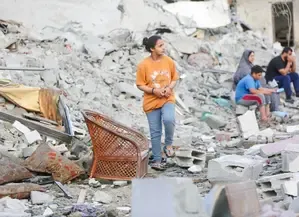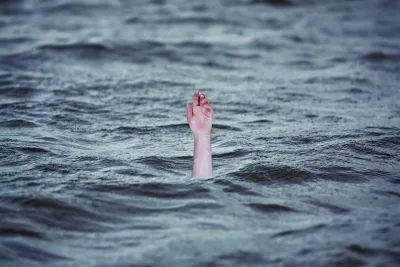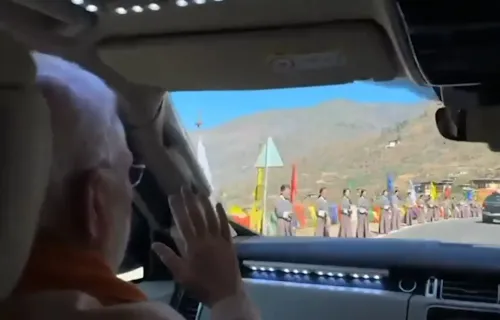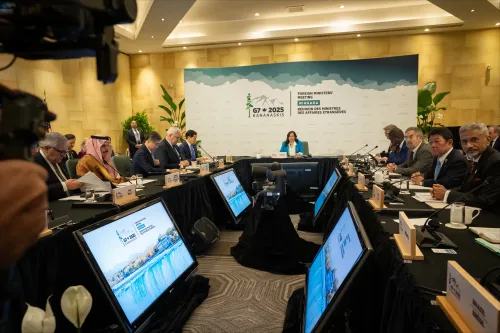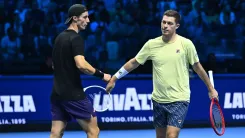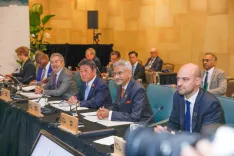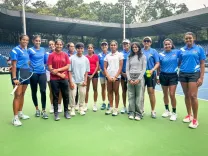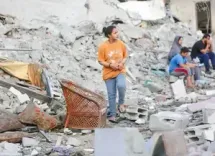What Did PM Modi Discuss with Russian Dy PM Patrushev?
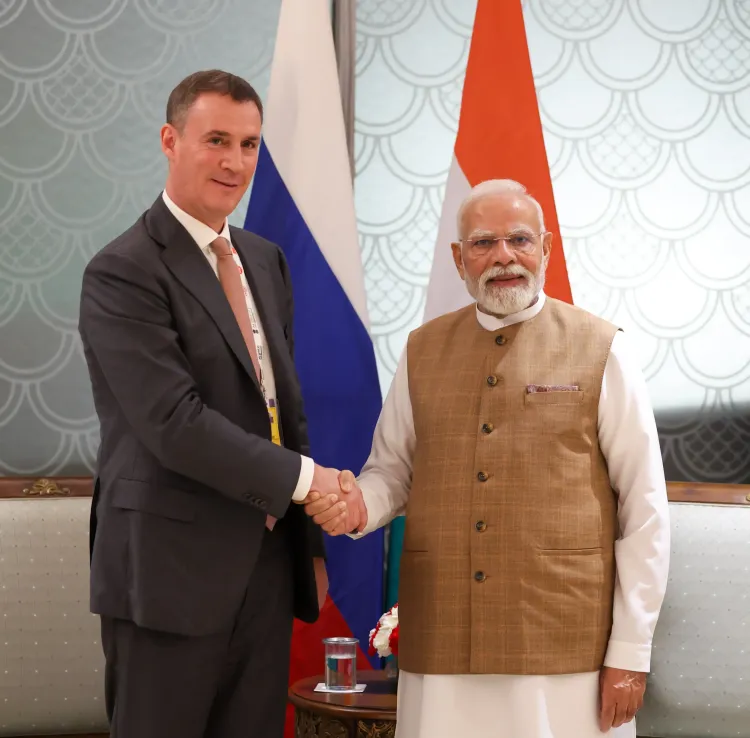
Synopsis
Key Takeaways
- PM Modi and Dmitry Patrushev discussed enhancing bilateral cooperation.
- Focus areas include agriculture, fertilizers, and food processing.
- Russia is a key partner at the World Food India 2025 event.
- India-Russia defense cooperation is set to strengthen, including AK-203 rifle production.
- US pressure on India regarding Russian oil purchases continues.
New Delhi, Sep 25 (NationPress) Prime Minister Narendra Modi engaged in discussions with Russian Deputy Prime Minister Dmitry Patrushev during the World Food India 2025 event, which the Prime Minister officially opened at the Bharat Mandapam in the national capital.
Both leaders exchanged insights on boosting collaboration between India and Russia across various sectors, including agriculture, fertilizers, and food processing, among other mutually beneficial areas.
Taking to his official X account, PM Modi expressed: "Delighted to meet Russia's Deputy Prime Minister Dmitry Patrushev at the World Food India 2025. We explored avenues to fortify our mutually beneficial partnership in agriculture, fertilizers, and food processing."
The Prime Minister also extended warm regards to Russian President Vladimir Putin and expressed eagerness for his upcoming visit to India for the 23rd India-Russia Annual Summit.
Earlier on Thursday, during the inauguration of the Uttar Pradesh International Trade Show in Noida, PM Modi noted Russia's role as the country partner for this event, highlighting it as a testament to the two nations' "enduring partnership".
Despite recent pressure from the White House on New Delhi to reduce its ties with Moscow—particularly regarding Russian crude oil purchases—relations between New Delhi and Moscow remain optimistic with Putin's anticipated visit for the annual summit in December.
Deputy Prime Minister Patrushev, who oversees the agriculture and agro-products portfolio, was in India this week.
As a partner country for the World Food India event, PM Modi emphasized the strengthening of the "time-tested partnership" between the two nations.
While the White House continues to challenge India on its Russian oil imports, it has also hinted at a possible meeting between US President Donald Trump and PM Modi, likely on the sidelines of the upcoming East Asia Summit from October 26 to 28 in Kuala Lumpur, Malaysia.
Media reports suggest Trump may travel to India for the Quad Summit, anticipated later this year or early in 2026.
In his address in Noida, PM Modi highlighted governmental efforts to create a robust ecosystem for domestic defense production, underlining the significant role of Uttar Pradesh.
He reiterated the importance of India-Russia defense cooperation, stating, "The production of AK-203 rifles will soon commence at the factory established in collaboration with Russia."
PM Modi mentioned the construction of a defense corridor in Uttar Pradesh dedicated to manufacturing a variety of weapons, noting the initiation of BrahMos missile production.
According to an official statement, Russia's participation in the trade show as a partner country adds strategic significance, paving the way for enhanced bilateral trade, technology exchange, and long-term collaboration.
The trade show witnessed participation from over 2,400 exhibitors, with 125,000 B2B (business-to-business) visitors and 450,000 B2C (business-to-customer) visitors.
On Wednesday, US Energy Secretary Chris Wright emphasized the US's desire for greater energy collaboration and trade with India across sectors like natural gas, coal, and nuclear energy.
Wright affirmed, "While we encourage India to purchase oil from various nations, we firmly oppose Russian oil imports. That's our stance."
During his Noida address, PM Modi discussed the benefits derived by citizens from reductions in certain goods and services tax (GST) rates.
He urged citizens to support swadeshi products, reiterating his government’s commitment to Atmanirbharta, or self-reliance.
PM Modi stated, "There is no greater helplessness than dependence on others. In a shifting world, a country's growth is compromised the more it relies on others," adding, "India is no longer willing to be dependent on other countries."

